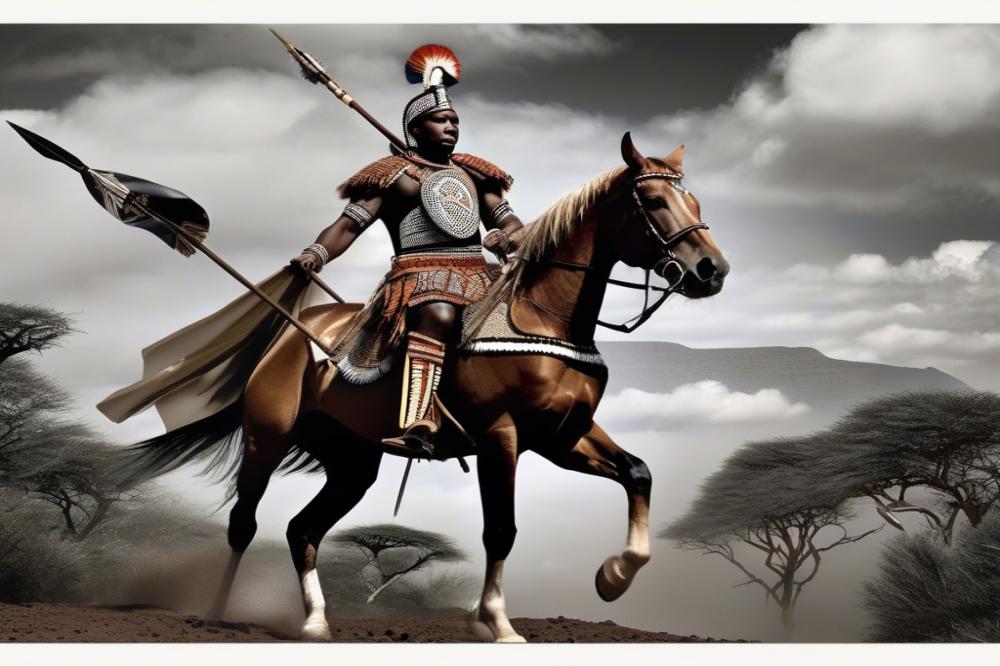The Symbolism of Horses in the Zulu warrior tradition
Across many societies, horses hold a deep significance. They represent strength, loyalty, and freedom. Different cultures revere these majestic creatures for various reasons. In certain traditions, horses are essential in warfare and are often seen as a sign of status. From the Mongols to the Native Americans, these animals carry rich symbolism.
The Zulu people of South Africa have a storied warrior tradition. Known for their fierce combat skills, they engaged in battles that shaped their history. Warriors displayed bravery and honor, often fighting for their clans and communities. In this context, horses served a vital role in their battles and daily life. They provided not just a means of transportation but also a connection to cultural heritage.
Delving into horse symbolism reveals how deeply intertwined these animals are with Zulu identity. For the Zulu, owning a horse is often associated with wealth and power. Moreover, horses accompany significant rituals and ceremonies, marking important life events. As a result, they are more than just animals; they symbolize a legacy that embodies the pride and spirit of the Zulu people.
The Role of Horses in Zulu culture
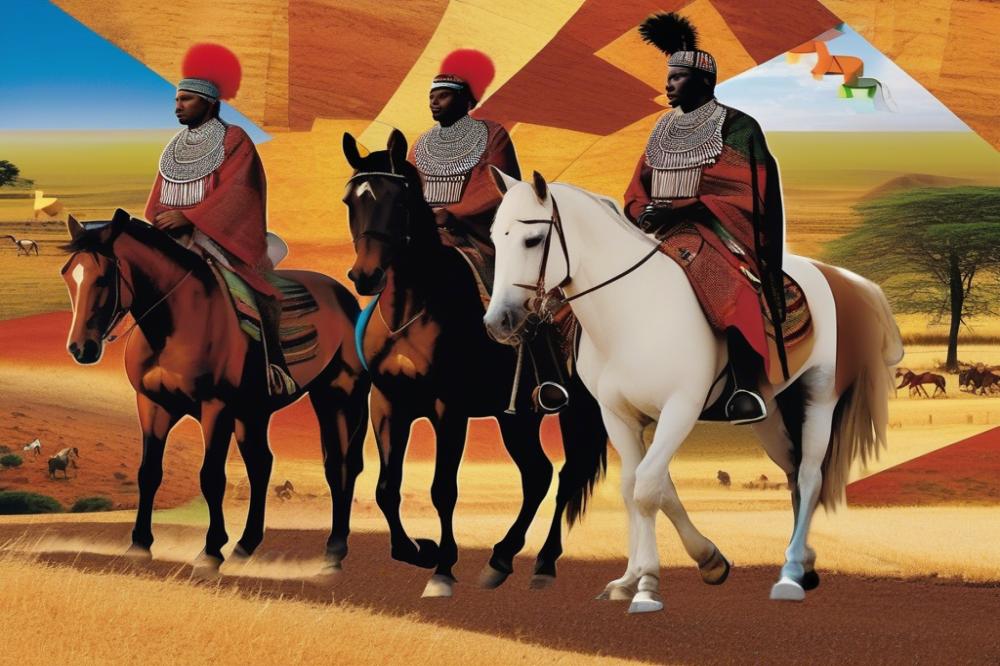
Horses held a significant place in Zulu society, especially during the early interactions with European settlers. Their introduction changed various aspects of Zulu life. Before horses arrived, mobility relied solely on foot. This lack of efficient transportation limited the movement and reach of communities.
With the arrival of these animals, travel became easier and faster. Horses allowed for greater engagement in trade and better communication between groups. The ability to move swiftly across the landscape transformed how the Zulu could defend their territory. Armies became more organized and effective with mounted warriors.
Horses as Symbols of Status and Wealth
In Zulu culture, owning horses symbolized wealth and power. Those who possessed many horses often gained respect and admiration from their peers. Wealth was measured not just in livestock, but also in the number of horses a person owned. Status within the community was closely tied to this ownership.
Horses also played a role in traditional ceremonies. They were often used in rituals that marked important life events like marriages or coming-of-age ceremonies. During these events, horses enhanced the display of wealth. People who showcased beautiful and well-trained mounts received recognition and praise.
The Impact of the Introduction of Horses in Africa
The arrival of horses in Africa had widespread effects, transcending just one culture. Many groups began to integrate horses into their daily lives and traditions. This integration reshaped social structures and trade routes. Economies developed around horse ownership and breeding.
The new technology of horseback riding also influenced military strategies. Armies adapted tactics to include mounted units. Conflicts often turned on the ability to move quickly and strike unexpectedly. The overall landscape of power and warfare in the region was altered profoundly.
In summary, horses were more than just animals to the Zulu. They served as crucial links between mobility, wealth, and power in a changing world. Their arrival marked a pivotal shift in the dynamics of African societies.
Horses in the Zulu Warrior Tradition
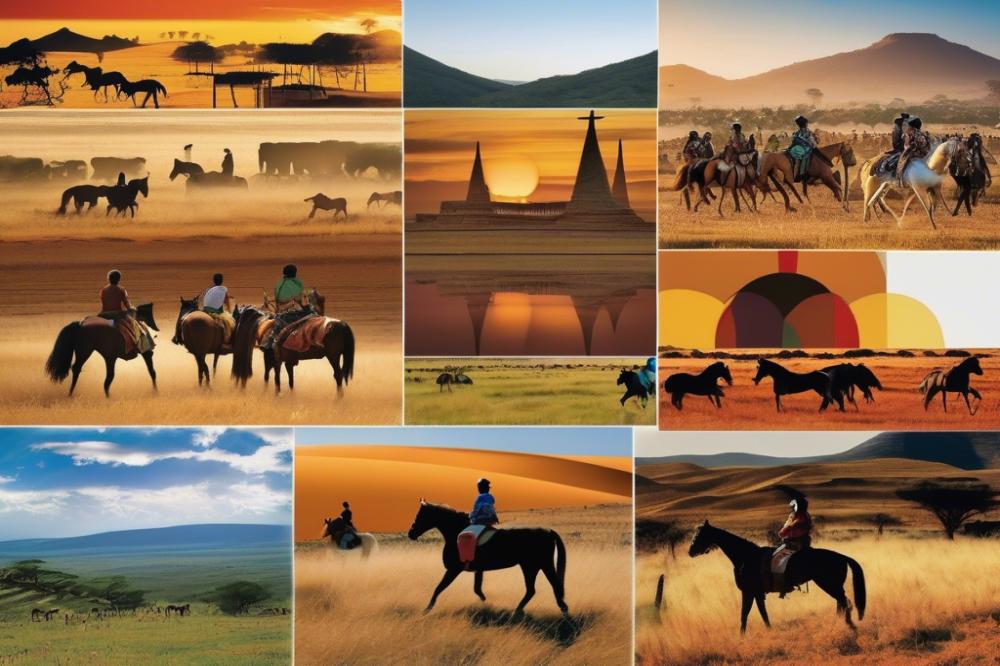
The bond between Zulu warriors and their horses is deeply rooted in their culture. These majestic animals were more than just transportation; they represented strength and loyalty. Horses played a significant role in the lives of these fighters, impacting their strategies and lives during battles. Many skilled warriors chose their mounts carefully, as each horse had its personality and qualities.
Training equines was crucial for readiness in combat. Warriors engaged in regular practice sessions to develop their riding skills. Mastery of horseback riding improved efficiency in battle and allowed them to navigate the battlefield with agility. A warrior’s experience with their horse contributed to their overall effectiveness as a fighter. Such training routines were often demanding but essential.
In the heat of battle, horses acted as companions. They provided both mobility and a sense of security. The partnership between a warrior and a horse formed a vital alliance in times of conflict. Trust played a big role, as warriors relied on their mounts to carry them through danger. Together, they shared intense experiences and faced challenges head-on.
Symbolism of Horses in Indigenous Beliefs
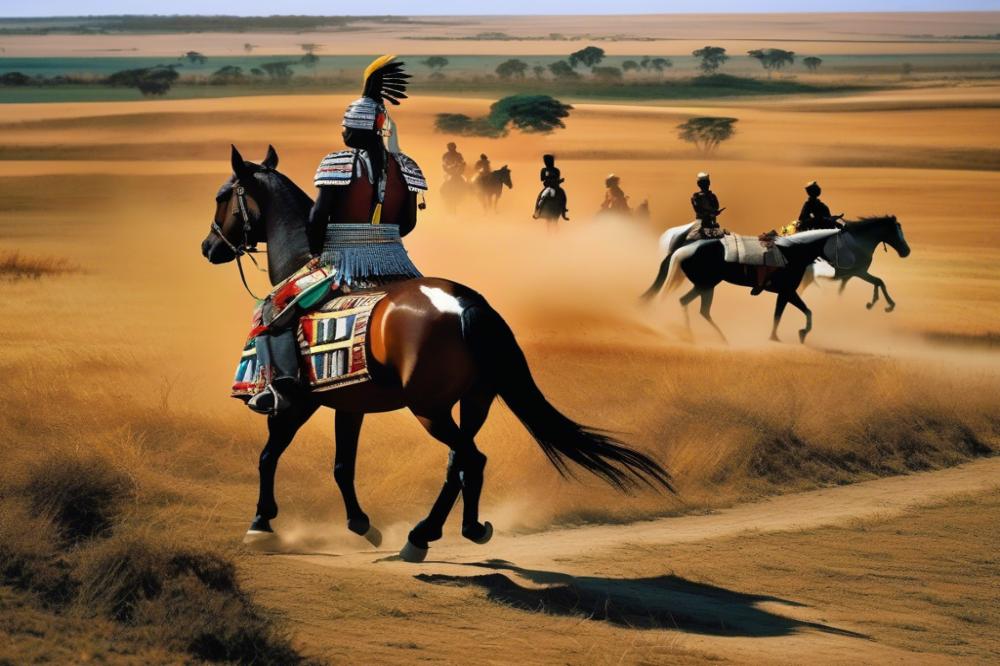
Horses carry deep spiritual significance within Zulu culture. They symbolize strength and power. In many communities, a horse is seen as a vital companion in both life and death. The connection between the animal and the spirit world is profound. These majestic creatures are often viewed as bridges to ancestral guidance.
Horses in Zulu Myths and Folklore
Myths surrounding horses abound in Zulu stories. Legends often depict them as messengers of the gods or protectors in battle. In folklore, they are not just animals; they are integral characters that influence human lives. Such tales convey lessons about bravery and loyalty. This highlights the important role horses play in shaping cultural values.
Ancestral Connection to Horses
The connection to horses runs deep in Zulu heritage. Ancestors are believed to ride these steeds, guiding their descendants. This belief fosters respect and reverence for the animal. Horses are considered sacred, representing the union between the living and the departed. Rituals involving horses often feature prominently in major life events, linking community members to their roots.
Throughout history, horses have represented wealth and status. Possessing a horse indicates strength and the ability to lead. They embody the spirit of resilience, an essential trait among the Zulu people. In ceremonies, the presence of a horse reinforces the notion of continuity with the past.
Pride and Strength Associated with Horses
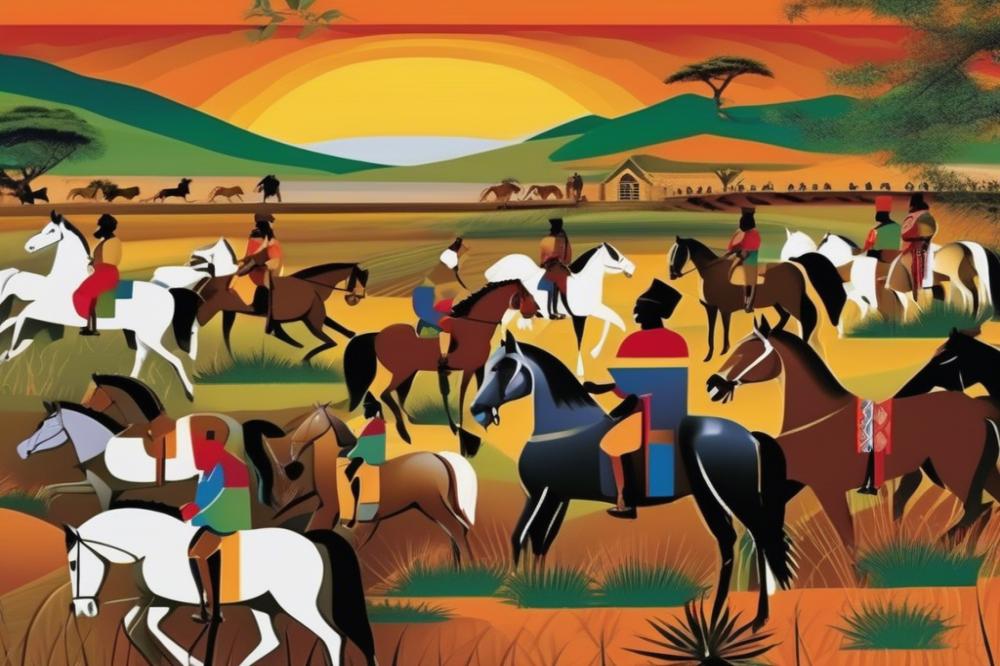
Horses hold a significant place in Zulu culture, especially among warriors. They symbolize bravery and valor. A skilled horseman commands respect and admiration. The bond between a warrior and his horse reflects personal strength and courage.
During various ceremonies, horses play a key role. Rituals celebrating warrior achievements often feature these majestic animals. Dressed in vibrant colors and adorned with beads, horses become symbols of triumph. Such celebrations highlight the relationship between equestrian skill and honor.
Communities take great pride in their horsemen. Each display of horsemanship reinforces a sense of belonging and identity. Children often watch in awe, dreaming of the day they will ride with pride. Equestrian skills also serve as a unifying force within the community.
In battles, horses provided a tactical advantage. Their speed and power represented the might of a warrior. History shows that brave riders could turn the tide of conflict. The sight of a warrior mounted on a strong steed was both inspiring and intimidating.
Horses also symbolize a legacy. Generations share stories of courageous riders and their trusted mounts. This connection fosters a deep respect for both horse and rider. Each tale reinforces community bonds and values of strength and courage.
Horses in Zulu Heritage and African History
The legacy of horses runs deep within Zulu culture. Stories and folktales often feature these magnificent animals. They symbolize strength, bravery, and prestige. In the past, possessing a horse indicated wealth and status. Many Zulu heroes are celebrated for their skills in horsemanship. These narratives highlight the connection between the horse and warrior identity.
Throughout history, the symbolism of horses has transformed. Initially, they were seen mainly as symbols of power. Later, cultural shifts changed perspectives. The arrival of European colonizers altered the role of horses. Over time, factors like warfare and trade had profound effects. What began as a mark of status became a tool of survival. The utility of horses shifted with changing social dynamics.
Modern Zulu culture still honors equine traditions. Festivals often celebrate the bond between people and horses. Riders showcase their skills in various events. These gatherings serve as reminders of the past. Narratives of significant figures and their horses are shared with younger generations. This practice fosters pride in heritage and identity. Aspirations in horsemanship continue to inspire recent generations. Despite changes, the love for horses remains strong in the community.
Wrapping Up the Legacy of Horses in Zulu Culture
Horses hold a notable place in Zulu warrior tradition. They symbolize power, courage, and status. As those who rode them showed strength on the battlefield, horses became extensions of their riders. This deep connection speaks volumes about honor and bravery. Beyond physical prowess, the emotional bond between horse and rider illustrates the unity crucial to Zulu identity.
Exploring the symbolism of horses across various cultures reveals fascinating parallels. Many societies view these animals as representations of freedom and loyalty. Whether in warfare or peace, horses often signify the connection between mankind and nature. This shared appreciation highlights a universal understanding of trust and mutual respect. It’s remarkable how one creature can embody so much across different traditions.
Ultimately, the legacy of horses continues to influence the Zulu people. They are woven into stories, rituals, and the very fabric of their culture. This enduring relationship fosters a sense of continuity and pride. Understanding how horses impact Zulu identity helps us appreciate their historical significance. As we look back, it’s clear that this bond transcends mere utility. It serves as a lasting reminder of what it means to be a part of an intricate warrior tradition.

